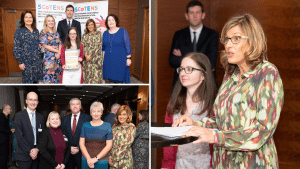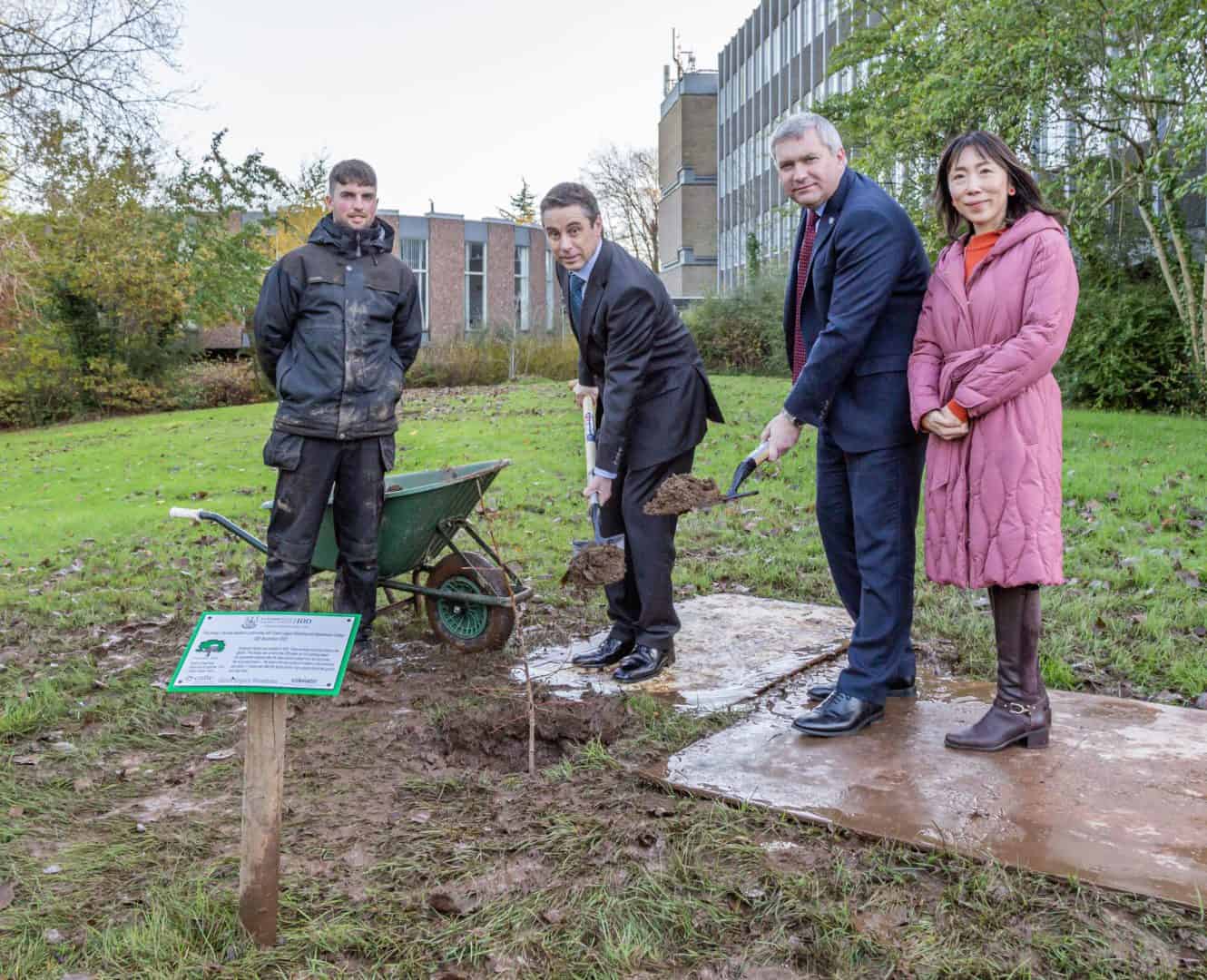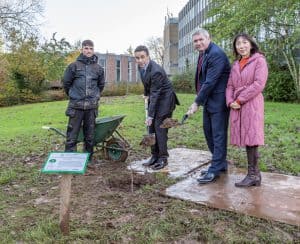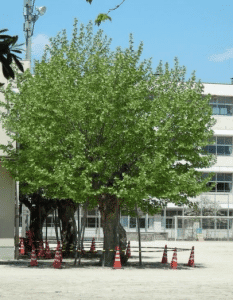Beginning in Autumn 2020, a research team from Stranmillis University College led by Jill Magennis and Dr Anita Gracie, have been participating in an international research project into ‘Forgiveness Education’.
Funded by the John Templeton Foundation, the project aims to assess the impact of the implementation of Forgiveness Education (FE) in educational settings within the three culturally distinct regions of Israel/Palestine, Taiwan and Northern Ireland. It is expected that the findings of the project will be shared towards the end of 2023.
In July this year, research and school partners from Northern Ireland were invited to the USA to attend and participate in the Forgiveness Education Conference at the University of Wisconsin-Madison. We asked Jill Magennis who led the team to US to report back on the event and the experiences of the school partners involved in the project.
***
On 16th July 2022 a group of teachers and educational partners from schools throughout Northern Ireland, alongside myself (Jill Magennis) and Mark Shields from Stranmillis University College, set off to Madison, Wisconsin in the USA for the International Forgiveness Education Conference.
Forgiveness Education is a concept that has been developed over a period of 27 years by Dr Robert Enright, Professor of Educational Psychology at the University of Wisconsin-Madison, a licensed psychologist, and the founding board member of the International Forgiveness Institute.
Forgiveness Education acknowledges that to forgive a person who causes an unfair hurt is to see their inherent worth, to extend loving thoughts, feelings, and actions toward the person; and, to respond with the gifts of kindness, respect, and generosity (International Forgiveness Institute, 2022).
In a recent meta-analysis of 20 studies on Forgiveness Education, findings suggested that interventions, focused on learning about the forgiveness process, had helped children who experienced hurt from unjust actions. They benefitted by learning to forgive and deal with feelings of anger, leading to healthier relationships (Rapp, Wang Xu, & Enright, 2022).
The research team at Stranmillis (Jill Magennis, Dr Anita Gracie and Dr Barbara McDade, supported by Research Assistants Dr Anne Rowan, Dr Anne-Marie Millar, Dr Mark Ballentine, Dr Franka Winter, Dr Susan Logue and Catherine Boyle), along with 17 primary schools, their principals, teachers and pupils, have been engaged with a research project looking at the impact of the Forgiveness Education curriculum amongst teachers and children in Primary 7.
This international conference, hosted by our research partners in the University of Wisconsin-Madison, was the culmination of months of hard work and dedication. This international research has also been taking place in Israel and Taiwan and during the conference we enjoyed listening to educators and researchers from the United States, Israel, Taiwan and the Philippines.
Philip Lavery, Vice-Principal, Mount St Michael’s Primary School, Randalstown, and Cormac McCabe, Vice-Principal, St Malachy’s Primary School, Castlewellan, represented the Northern Ireland team by sharing two insightful presentations from the work that has been happening in their schools. The videos, photographs and stories were a particular highlight. The conference was testament that despite coming from many different parts of the world, forgiveness has a common meaning across different contexts and cultures.
Some of our partners in both the Controlled and Maintained sectors reflect below on their experiences of the Forgiveness Education project.
Jennifer McCann, Principal of Newcastle Primary School, shares her thoughts on her involvement in the research project to date:
“[W]hen I first read the email about Forgiveness Education, little did I know I would spend time in USA at an International Educational Conference on Agape Love and Forgiveness. If truth be told, I had no idea what Forgiveness Education or Agape Love were! Fast forward 18 months from that initial email, training, several staff and pupil surveys, 14 lessons delivered to P7 and I found myself in the presence of some highly esteemed educators and practitioners from around the world, relaying their experiences of Forgiveness Education and Agape Love. As well as Northern Ireland, Israel and Taiwan were represented. It was very interesting to discover that Forgiveness Education remained the same despite the very different social, economic and educationally diverse platforms from which it was delivered. It was a privilege to meet Dr Robert Enright, the Founding Board Member of the International Forgiveness Institute who displayed such a passion and enthusiasm that he has devoted much of his working life to this subject. As with any conference its success is in main due to the people who attend. I must pay tribute to my colleagues from schools across Northern Ireland and Stranmillis University College who helped make this an unforgettable experience; special friendships and memories were made!”
Fiona Kearney, Principal, St. John’s Primary School, Swatragh, reflects on what forgiveness means:
‘”[Forgiveness is] something we say and take for granted but do we stop to think about what it means when we forgive or are forgiven? A chance to reflect on our Forgiveness project at a work conference in Madison, Wisconsin…what’s not to like? Then you stop to think about why you have agreed to meet up with a bunch of strangers at Dublin Airport in the holidays. A nicer bunch you couldn’t wish to meet…before long we were like family or old friends. The conference was a challenge in the form of long days and intense listening but the range of thought provoking individuals and their experiences gave much food for personal and professional reflection. My highlight was Sylvester Jackson’s story. A tale of redemption from America’s prison system, gave insight to what is needed from the ghetto to government. The trip organisers are owed a debt of gratitude for their skills in balancing travel arrangements, as well as work, rest and play. This was a unique experience and I for one will not forget the opportunity to learn more about the true meaning of forgiveness and the chance to make new friends. Go raibh maith agaibh! Thank you!”
Fintan Murphy, Chief Executive, Catholic Schools’ Trustee Service reflecting on the conference, said it was:
“an opportunity to hear from educators and academics from the USA, Israel, Taiwan and N. Ireland on their experience of the delivery of, and impact of, Forgiveness Education. What all held in common was an overwhelmingly positive experience of their engagement with the programme both in terms of a change within themselves, but also the change that it provoked within their students. From whatever perspective people approached forgiveness education there was a commonality of purpose evident at the Conference and that was the need to spread the word that this approach brings positive benefits to all who engage in the programme.”
Looking ahead, Fintan comments that “at a local level I await with anticipation the formal publication of the research which was undertaken by Stranmillis University College into the project and hope that the Forgiveness Education Programme, which has been used in schools in NI for 20 years, continues to flourish and spread among all our schools”.
Jayne Millar, Head of Education Support, Controlled Schools’ Support Council offers some insights into her experiences and participation in the conference:
“We have much to be proud of. The presentations delivered by both Cormac McCabe and Philip Lavery on their Year 7 pupils’ experiences in trialling the Guided Curriculum were truly inspirational. The excellence, dedication and courage of our teaching profession were demonstrated clearly on the world stage”.
Jayne continues:
“[T]he opportunity to meet and share experience of education innovations with practitioners from Israel, Taiwan and the Philippines, helped me to appreciate the many similarities in challenges within our education systems, as well as the uniqueness of Northern Ireland. What was perhaps of most interest to me was the question of impact. The pioneering research of Dr Robert Enright reaches well beyond schools into families and communities. The conference highlighted evidence of improvements in the emotional health and well-being of children, young people and adults as they learned to forgive”.
Jayne echoes Fintan’s words when she adds that “The research programme, led by SUC, has the potential to contribute to a number of important and inter-connected initiatives in schools. Teaching children to cultivate the virtues of love and forgiveness may help them to deal positively with the injustices of life and is highly relevant to programmes widely supported and promoted by CSSC such as Shared Education, Anti-Bullying, Restorative Practice and Trauma Informed Approaches. For me it resonates with the work of CSSC in ethos development within controlled schools which prioritises a values based approach to the teaching and learning environment”.
The trip was filled with happy memories of time spent in both Madison and Chicago. We enjoyed a tour of Wisconsin State Capital building, visiting Memorial Union at the University of Wisconsin-Madison and an outdoor music concert hosted by the Wisconsin Chamber Orchestra.
On our return journey we visited the University of Chicago Laboratory School originally set up by educational pioneer John Dewey. Here we learnt more about his approach of developing children’s confidence, curiosity and creativity through a tour within the lower school facilities.
We are indebted to our partner schools for giving up part of their summer holidays to represent both their schools and Northern Ireland at this international conference.
Stephen King, Principal of Newtownbutler Primary School (previously teacher in Currie Primary School), comments on the learning for the children in his class:
“The beauty of the programme is that every child regardless of their academic ability was able to embrace the programme and fully contribute to the lessons and interact throughout. It provides opportunities for each child to reflect in their own way and removes the ‘fear’ of them having to share their thoughts/ideas with their peers if they didn’t want to. This gave children the freedom to write/create at ease and in my opinion allowed us to get the best from them”.
There were a wide range of schools included in the Northern Ireland sample, including some from disadvantaged areas.
One aspect we are interested to explore is how schools from different backgrounds benefitted from the Forgiveness Curriculum. A previous study by Gambaro, Enright, Baskin and Klatt (2008) found a forgiveness programme improved classroom behaviours and led to higher levels of achievements for young people aged 11-13 years.
Our 17 partner schools engaged in delivering 14 PDMU lesson on the theme of forgiveness from September 2021 to June 2022. We are thankful for how they did this with such high levels of enthusiasm and creativity. The time taken to prepare the lessons and their thoughtfulness in delivering the lessons have not been taken for granted. We are also very thankful for the hard work of the P7 pupils, without whom none of this would be possible.
During our school visits, as a team we particularly enjoyed seeing the array of wonderful work on wall displays and in the children’s journals as well as observing their ability to discuss the different PDMU concepts explored in this programme. The considerable time taken to complete the surveys throughout the project and also the interviews with teachers and children were very important aspects to explore ways forward and we await the findings with anticipation.
Dr Robert Enright opened the Madison conference with some words from Aristotle who taught us that “educating the mind without educating the heart is no education at all’”. This was echoed by Dr Robert Enright himself who continued, “through forgiveness we offer goodness of some kind: kindness, respect, generosity or love“.
We greatly appreciated each of the schools for their pivotal role in helping to educate children’s hearts through the Forgiveness Education Curriculum.
Anita, Mark and myself are grateful for the new partnerships and friendships formed throughout this research project to date. This opportunity has allowed us to explore these ideas more fully together and we look forward for future collaborations and sharing the findings within the next 12-18 months. Watch this space…
Jill Magennis BEd (Hons), MEd, PGDip, SFHEA is a Senior Lecturer in Early Years Education.

References:
Gambaro M. E., Enright R. D., Baskin T. W. & Klatt, J. (2008) Can school-based forgiveness counseling improve conduct and academic achievement in academically at-risk adolescents? Journal of Research in Education, 18, 16-27.
International Forgiveness Institute (2022) What is Forgiveness? — International Forgiveness Institute. [ONLINE] Available at: https://internationalforgiveness.com/what-is-forgiveness-2/ [Accessed 31 October 2022].
Rapp, H., Wang Xu, J., & Enright, R.D. (2022) A meta-analysis of forgiveness education interventions’ effects on forgiveness and anger in children and adolescents. Child Development, 93, 1249-1269.





 The Governing Body and staff of Stranmillis University College are delighted that Professor Anne Heaslett, our former principal, has been recognised in the New Year’s Honours list. Professor Heaslett has been has been awarded the MBE.
The Governing Body and staff of Stranmillis University College are delighted that Professor Anne Heaslett, our former principal, has been recognised in the New Year’s Honours list. Professor Heaslett has been has been awarded the MBE.





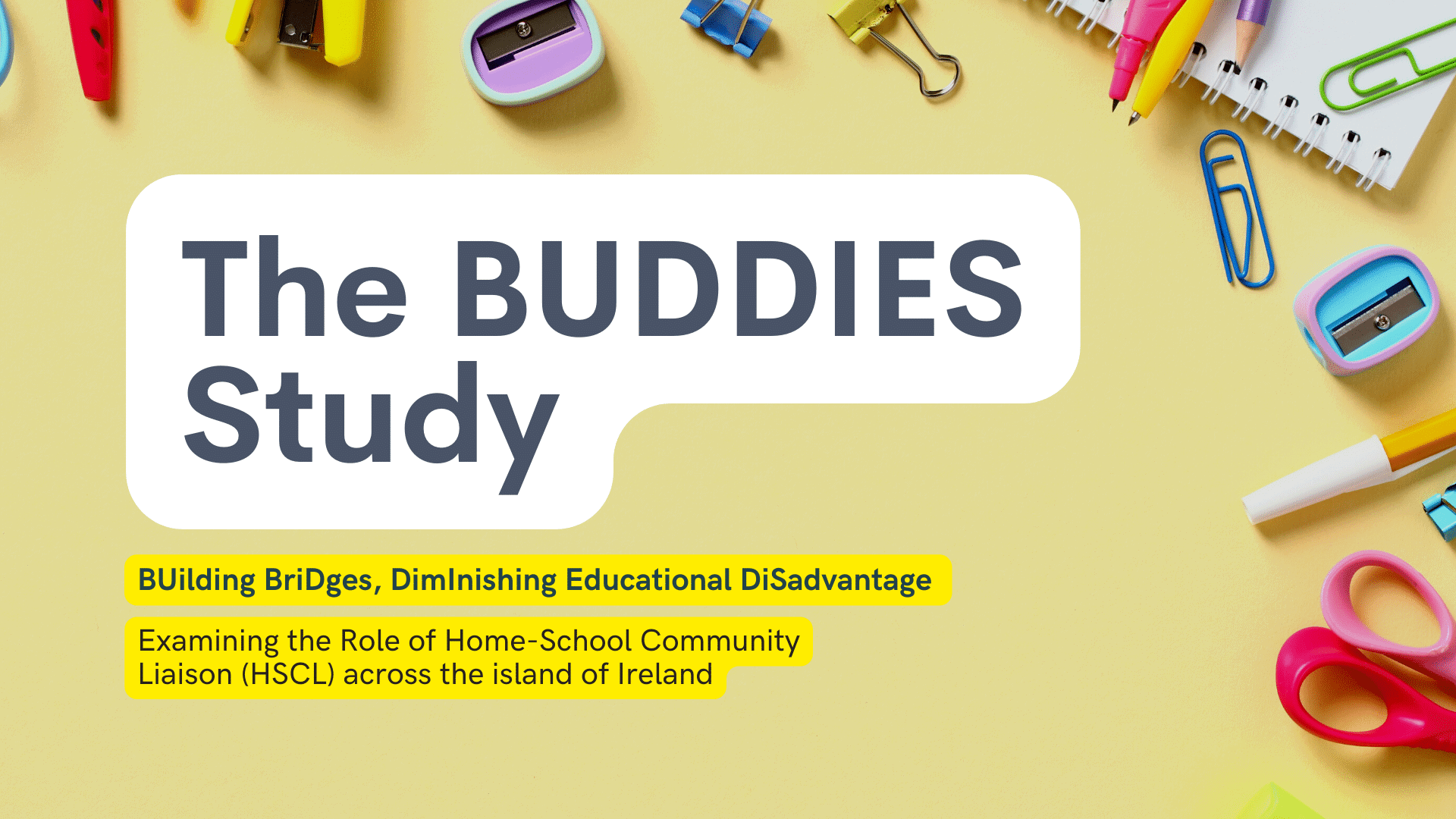
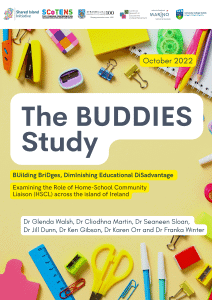 ‘The BUDDIES Study’ was one of two research projects funded by the Shared Island-SCoTENS Research Partnership, announced by the Taoiseach Micheál Martin TD in December 2021.
‘The BUDDIES Study’ was one of two research projects funded by the Shared Island-SCoTENS Research Partnership, announced by the Taoiseach Micheál Martin TD in December 2021.